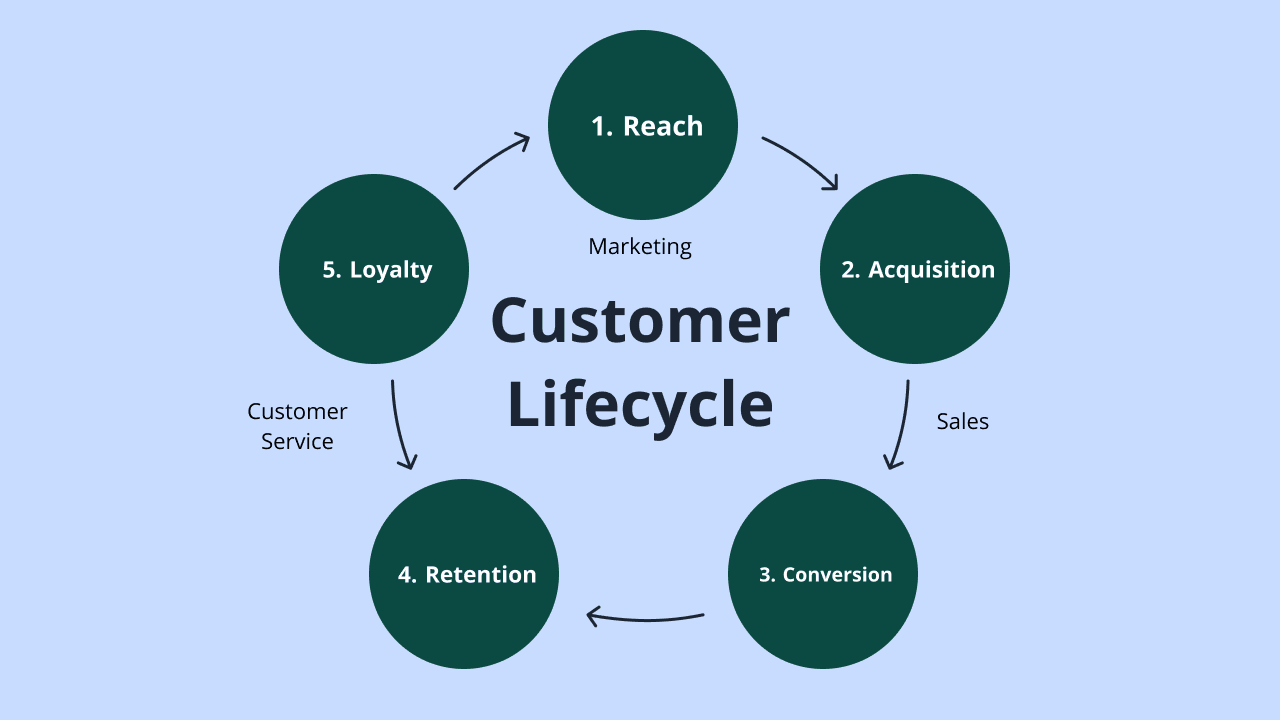Key takeaways:
- CRMs centralize customer data, streamline operations, and enhance communication. This leads to better customer satisfaction and loyalty.
- Essential CRM features like contact management and automation are vital. Also, customizing the system to your business needs ensures better performance.
- Set clear goals, train your team, and avoid common pitfalls like dirty data or lack of training to ensure long-term CRM success.
Customer Relationship Management (CRM) is the way a business tracks and nurtures every interaction it has with current and future customers. It gathers data from emails, calls, social posts, and even in-store chats. Then, it stores that information in one place, so teams see the full picture of each buyer, spot trends, and reply in a more personal way.
Sales can find fresh leads, marketing can send messages that feel tailor-made, and support can solve issues fast. Together, these benefits create smoother experiences for customers and help brands build relationships that last.
How a CRM works from first contact to repeat sale
A CRM system helps streamline the journey from the first contact with a lead to securing repeat sales. It tracks and organizes interactions and ensures your team can efficiently manage relationships at each stage.
Here’s how a CRM guides prospects through their lifecycle with these five touchpoints:

- Reaching potential customers. Focuses on raising brand awareness and attracting leads through marketing efforts.
- Customer acquisition. Converts leads into customers by nurturing them through the sales process and guiding them toward a purchase.
- Conversion. Turns new customers into active users or buyers.
- Customer retention. Keeps existing customers happy, engaged, and loyal to prevent churn and encourage repeat business.
- Customer loyalty. Builds long-term relationships with customers to foster loyalty and generate positive word-of-mouth.
Why small businesses need a CRM today
CRMs offer a lot of advantages that improve customer satisfaction, sales, and overall business efficiency. Here’s how a CRM solution can make a difference:
- Improved customer satisfaction
- Increased sales
- Streamlined operations
- Better data management
- Faster sales cycle
Improved customer satisfaction
47% of companies say that adopting a CRM system has helped them enhance customer satisfaction and retention, according to Freshworks. These are important to growing a loyal customer base.
Increased sales
A major benefit of CRM is that it helps boost sales. According to the same survey, businesses that use CRM systems saw their sales revenue increase by 21%-30%. This makes CRM a powerful and effective tool for driving business growth and achieving sales targets.
Streamlined operations
A CRM helps small businesses save time by automating routine tasks that would otherwise be manual. By reducing administrative work, sales teams can focus on closing deals and more productive activities.
Better data management
CRM systems provide small businesses with deeper insights into customer behavior which helps them make informed decisions. With more accurate and accessible data, businesses can improve marketing strategies and enhance customer interactions.
Faster sales cycle
CRM systems also help accelerate the sales process. Businesses using CRM software have reported a reduction in their sales cycle by 8 to 14 days, allowing them to close deals faster and boost revenue.
Core CRM features to look for
It’s important to focus on the features that will have the most impact on your business’s efficiency and growth. Here are the core CRM features to look for, their functions, and how they benefit your team.
| Feature | What it does | Why it matters |
| Contact management | Stores and organizes all customer information in one place. | Ensures you have easy access to customer details. This improves communication and relationship management. |
| Sales pipeline | Visualizes the entire sales process, tracking deals from lead to close. | Helps manage and prioritize deals, making sure no opportunity is overlooked. |
| Automation | Automates repetitive tasks like follow-up emails and reminders. | Saves time and reduces manual errors. This allows teams to focus on high-value tasks. |
| Reporting and analytics | Tracks performance metrics and generates detailed reports. | Provides data-driven insights to help teams make informed decisions and pinpoint areas for improvement. |
| Task management | Assigns and tracks tasks for team members within the CRM. | Helps ensure tasks are completed on time, improving accountability and efficiency. |
| Email integration | Syncs CRM with email accounts to manage communications effectively. | Streamlines communication and ensures no email is missed during the customer journey. |
| Mobile access | Allows access to CRM data on mobile devices. | Gives teams the flexibility to work on-the-go. This ensures they are productive from anywhere. |
To ensure your CRM system runs smoothly, you need a reliable hosting solution. Look for a robust hosting solution that can provide the speed, reliability, and security necessary for running your CRM without the hassle.
Types of CRM and which fits your business
There are three main types of CRM systems: operational, analytical, and collaborative. Understanding which one suits your business best can help you maximize the CRM’s benefits.
| Type | Focus | Best for | Example uses |
| Operational | Focuses on automating and streamlining business processes, including sales, marketing, and service. | Small businesses that want to be efficient in their daily operations. | Automating lead capture, managing sales workflows, and customer support. |
| Analytical | Focuses on data analysis and reporting to help businesses understand customer behavior and make data-driven decisions. | Companies that need to analyze customer data for better decision-making. | Segmenting customers based on behavior, identifying trends, and optimizing marketing efforts. |
| Collaborative | Focuses on facilitating communication and collaboration between teams, ensuring everyone has access to the same customer data. | Businesses that have multiple departments working together and need shared access to customer data. | Improving communication between sales, marketing, and customer service teams to deliver a unified customer experience. |
12-week CRM rollout roadmap
The goal of a 12-week CRM rollout is to implement your CRM system effectively. This ensures that all teams are onboard, data is integrated, and processes are streamlined. This roadmap below will provide you with a clear timeline for setting up, training, and optimizing your CRM system.
- Week 0-2: Set goals and objectives
- Week 3-4: Select and customize CRM
- Week 5-6: Data migration
- Week 7-8: Team training and onboarding
- Week 9-10: Test and fine-tune
- Week 11-12: Review metrics and adjust
- Week 0-2: Set goals and objectives
Define the objectives for your CRM implementation so that everyone understands the purpose of the CRM. This can be improving sales efficiency, customer retention, or data accuracy. Setting goals also helps measure the system’s success later.
- Week 3-4: Select and customize CRM
Choose the right CRM software according to your business needs and then customize features like dashboards, workflows, and integrations to tailor your processes. Customizing ensures that the CRM supports your specific processes which can help increase its effectiveness and adoption across different teams in your organization.
- Week 5-6: Data migration
Import customer data into the CRM system, so your team has access to reliable and up-to-date information. Ensure that outdated or duplicate data is cleaned up before transferring or else it could hinder your system’s effectiveness and frustrate your team.
- Week 7-8: Team training and onboarding
Provide comprehensive training for all your team members. This ensures that your team can use the CRM effectively. Without it, the system could become underused and lead to missed opportunities and inefficiencies.
- Week 9-10: Test and fine-tune
Test the CRM system with real data and use cases because it will help you identify issues, bottlenecks, and areas of improvement. During this stage, you can refine features like automations, workflows, and integrations to ensure the system works as expected and meets the needs of your team. Fine-tuning will help prevent disruptions once the system is live.
- Week 11-12: Review metrics and adjust
Don’t forget to review performance metrics such as user adoption, sales performance, and customer satisfaction. This helps you evaluate if the CRM is helping you achieve your goals you set in Week 0–2. Gather feedback and make necessary adjustments as needed to ensure that CRM continues to evolve and provide value over time.
Common mistakes to avoid when using CRM
When you implement your CRM, there are common mistakes you might make that can detail its effectiveness. These are some common pitfalls to watch out for:
- Dirty data. If you fail to clean and verify your data before importing it, it can lead to inaccurate insights and poor decision-making.
- Over-customizing. Don’t go overboard with customizing your CRM because it can become complicated and harder for your team to use.
- Skipping training. When you don’t train your team properly, it can lead to underutilization and frustrated users.
- Ignoring mobile access. Neglecting to set up and encouraging mobile use among your team can limit their flexibility and productivity.
- Lack of clear goals. Without clear goals, it’s difficult to measure if the use of CRM is successful or if you’re meeting your business needs.
- Not monitoring usage. Not tracking CRM adoption and customer engagement can prevent you from identifying areas where your team may need support or training.
Make the most out of your CRM
CRMs help you centralize all your customer data, streamline your processes, and deliver better, more personalized experiences. While it takes some effort to set up everything, the payoff is huge: better sales, smoother operations, and more satisfied customers.
The best CRMs have clean customer data, especially for marketing and sales. You can achieve this by running properly targeted online marketing campaigns. That requires expertise and time. Our digital marketing services team have both, and they’re ready to help you.
The goal is to make sure you customize your CRM to fit your needs, get your team fully on board with the training, and keep an eye on how things are going once it’s up and running.
In the meantime, you can explore our articles about all-in-one Hosting and customer segmentation.
Frequently asked questions
CRM stands for Customer Relationship Management, a system that helps businesses manage and analyze customer interactions and data.
A customer relationship management software costs vary, typically ranging from $10 to $100 per user per month, depending on features and provider.
CRM setup can take anywhere from a few days to several weeks, depending on customization and data migration needs.
Yes, a CRM streamlines customer support by providing agents with a unified view of customer history, improving response time and service.
Spreadsheets can work for basic tracking but lack the automation, organization, and scalability that a CRM offers for managing customer relationships.




